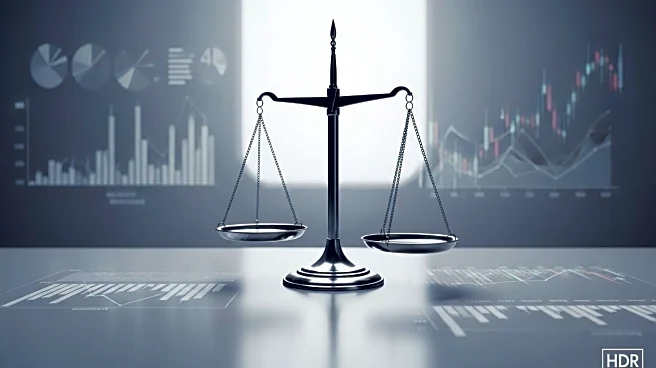What's Happening?
NBC News reports on the potential economic impact of the current U.S. government shutdown, which began due to an impasse over health insurance subsidies. Analysts suggest that while the shutdown could add challenges to the economy, its long-term effects are likely to be limited. Historically, shutdowns have resulted in temporary economic slowdowns, with previous shutdowns reducing GDP growth by a small margin. The current shutdown could lead to furloughs and job cuts, affecting federal workers and delaying economic data releases, such as the jobs report.
Why It's Important?
The government shutdown occurs at a critical time for the U.S. economy, which is facing rising inflation and a weakening labor market. The delay in economic data releases could complicate the Federal Reserve's decision-making process regarding interest rates. While markets have historically weathered shutdowns with minimal long-term impact, the current economic conditions add uncertainty to the situation. The shutdown could also raise concerns about the U.S. credit rating, although analysts believe a downgrade is unlikely.
What's Next?
The resolution of the shutdown will depend on negotiations between Republican and Democratic leaders. The duration of the shutdown will influence its economic impact, with longer shutdowns posing greater risks to growth and employment. The Federal Reserve will need to navigate the challenges posed by delayed economic data as it considers future rate decisions. Investors and policymakers will be watching closely for signs of compromise and a potential end to the shutdown.
Beyond the Headlines
The shutdown highlights the political divisions in the U.S. government and the challenges of reaching consensus on fiscal policy. The situation underscores the importance of effective governance in maintaining economic stability and confidence. The potential for permanent job cuts raises ethical questions about the treatment of federal workers and the role of government in supporting employment.









